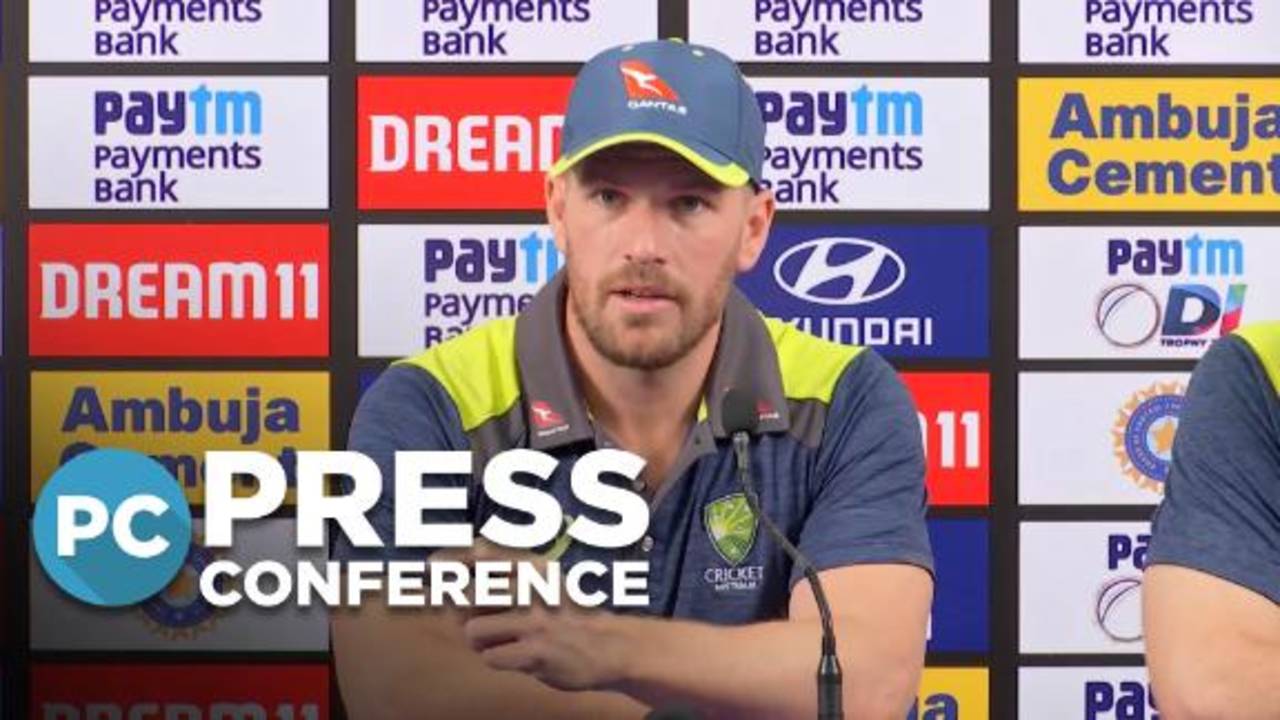Allrounder Ashton Agar tipped to take up pivotal role in Australia's ODI set-up
High on confidence and with the backing of his team, Agar could be key to how Australia balance their side in India
Ankur Dhawan in Mumbai
10-Jan-2020
A player who wasn't part of Australia's World Cup squad and last played in the format in 2018 could be key to how they balance their ODI side in India. Ashton Agar is tipped to take over the allrounder's spot in the top seven, a role that has in recent times featured Marcus Stoinis, Glenn Maxwell and James Faulkner.
With both Stoinis and Maxwell dropped after a poor World Cup, and Faulkner not in the fray currently, Australia's fifth bowling options appeared thin when the squad was announced.
A cursory glance at the squad posed the question of whether they would have to split ten overs between two batsmen who bowl a bit of part-time spin: D'Arcy Short, who earned a late recall as the injured Sean Abbott's replacement and Marnus Labuschagne, who has been prolific in Tests but is yet to play an ODI.
But how would they fit both Short and Labuschagne, both top-order batsmen, into the XI? And, should they manage to do that, will the plan overburden the quicks who are coming off five home Tests in demanding conditions?
But a closer enquiry reveals that Australia are looking at Agar as the panacea for these problems.
"I think the package that he brings with his batting and his left-arm spin bowling is going to be a really important part of the make-up of our side," captain Aaron Finch said. "He is someone we are hoping can start to fill the role of the allrounder more often."
On his return to the side in the home T20Is against Sri Lanka and Pakistan late last year, Agar not only formed a formidable partnership with lead spinner Adam Zampa, but in fact outbowled him. In six matches, Agar picked up seven wickets at an economy rate of under six, whereas Zampa - in five matches - finished with five wickets at 6.57 an over. Impressive though the numbers are, they weren't good enough to fetch him an IPL contract.

Ashton Agar played a solid innings•Getty Images
Furthermore, the surfaces in India should suit him more than the pace and batting-friendly ones back home. That was perhaps another reason why Agar was chosen ahead of a seam-bowling allrounder like Stoinis, who in his nine matches in India across two tours averages a tick over 87 with the ball. Besides, against an India line-up that isn't always as assured against spin as teams of the past, a second spinner isn't necessarily a risk.
Zampa, who played all five matches in India when the teams met ahead of the World Cup last year, was the second-highest wicket-taker in the series. The presence of a possible four right-handers in India's top order also gives the fingerspinner, who turns the ball away from the bat, something to dip into.
"In particular, probably the one difference in the squad is that allrounder's spot," Finch said. "For this trip we have gone with the spinning allrounder, as opposed to the medium-pace, fast-bowling allrounder that we had in Stoinis at the World Cup and now we've gone with Agar. That's just the main difference when you are picking a squad for certain conditions."
The tougher challenge for Agar, whose earliest claim to fame was his 98 from No.11 against England on Test debut, is likely to be as a batsman. Stoinis, a regular on the ODI scene until the World Cup, enjoyed success as a batsman in India. In 2017-18, Stonis was the third-highest run-getter for Australia in India, behind only openers David Warner and Finch. Overall, he averages 58.60 with the bat in India.
But Agar, who has always shown promise in that department, has numbers to prove for it recently. He played a key role in Western Australia lifting the domestic one-day Cup, with an unbeaten 29 in the final against Queensland, as he and Shaun Marsh steered them home in a tricky chase. In the Sheffield Shield, Agar's bowling may have been off the boil, but his batting has been a revelation with two fifties at an average of 52.40, making this his most prolific season in the competition with the bat.
High on confidence and with the backing of his team, Agar now has a chance to establish himself as the pivot around which Australia's ODI fortunes revolve.
